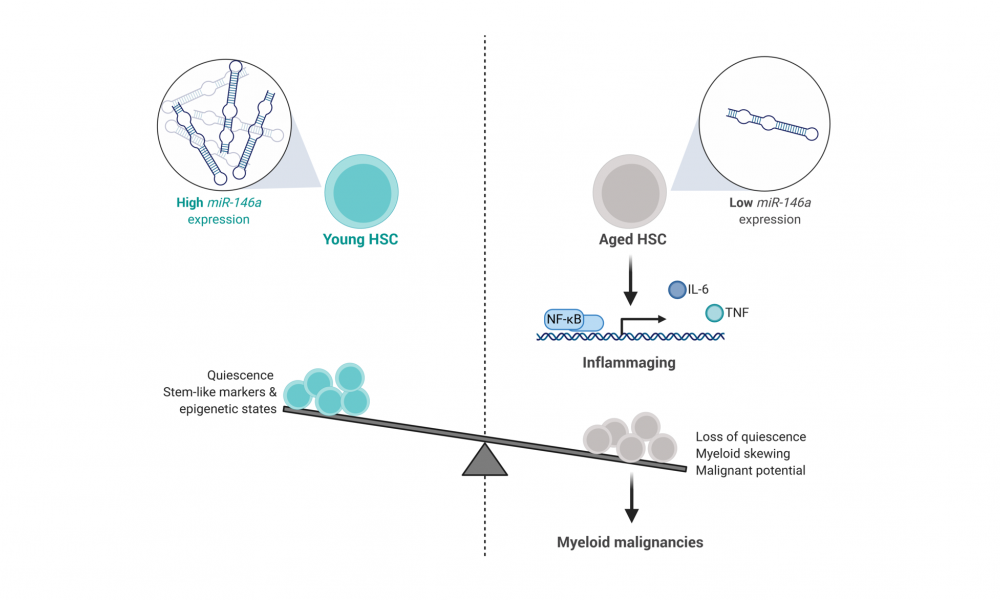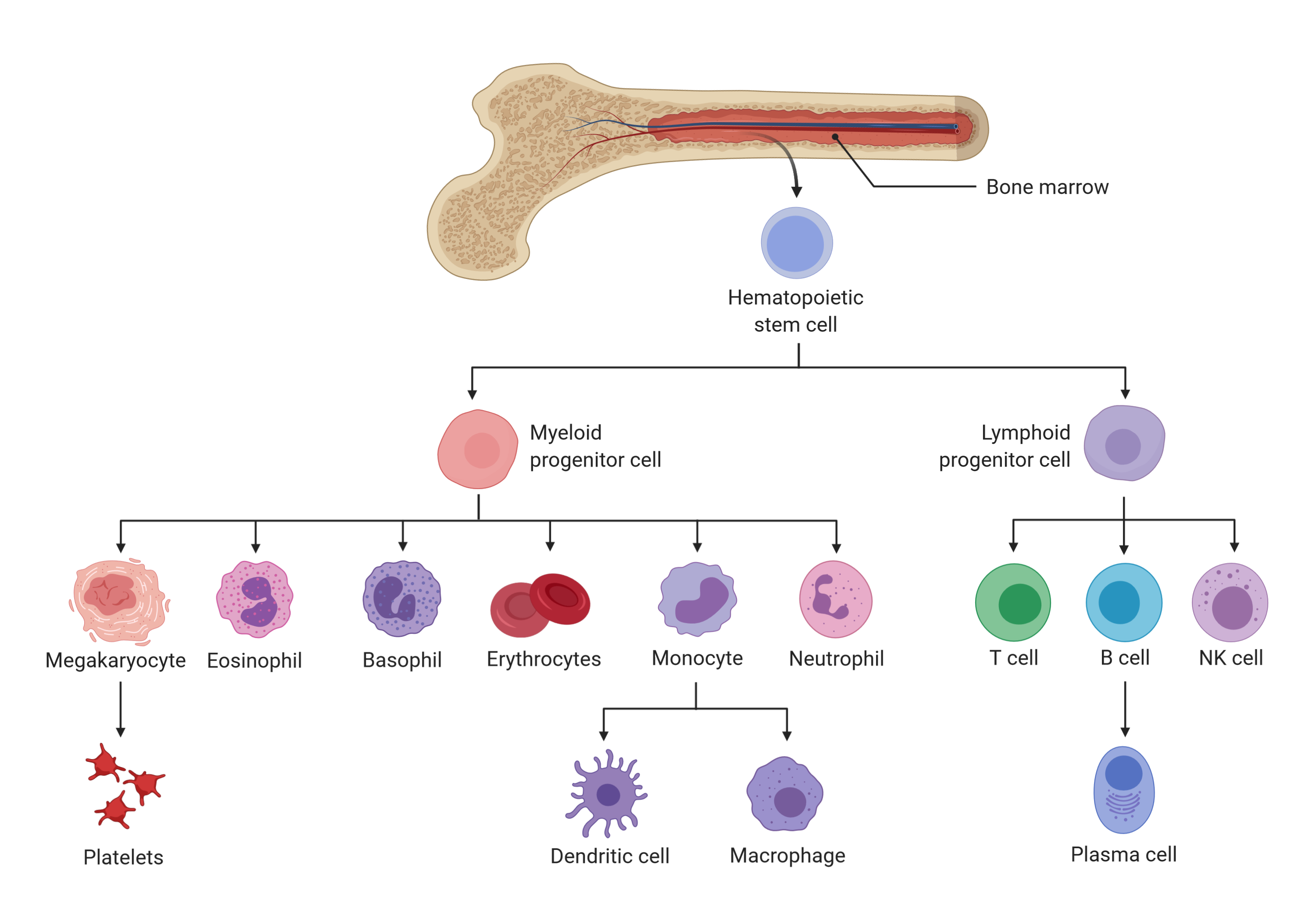
The single most significant risk factor for the development of cancer is age, and researchers have now used transcriptomics to uncover an age-related genetic explanation for blood cancers called myeloid malignancies.
Myeloid malignancies are cancers affecting hematopoietic stem cells or progenitor cells —bone marrow-residing cells that give rise to all mature blood cells. Genetic alterations in these cells lead to cancers including myelodysplastic syndromes (MDS) and acute myeloid leukemia (AML).

Aging is associated with impaired function of hematopoietic stem cells and subsequent development of myeloid cancers. A key driving factor behind these cancers has been hypothesized to be inflammaging—aging-associated inflammation that occurs in the absence of infection or injury. Inflammation has the potential to damage cells, leading to genetic alterations and subsequent cancer formation.
Markers of inflammation are often elevated in patients with AML and MDS, and high levels of one of these markers—called TNF—at the time of diagnosis indicates poor prognosis. But a direct link between inflammaging and myeloid malignancies had not yet been established.
In a new study published in the journal Blood, led by Dr. Aly Karsan, Distinguished Scientist at Canada’s Michael Smith Genome Sciences Centre at BC Cancer, researchers used various single cell sequencing and functional technologies to study the cells of patients with myeloid cancers.
“It has long been appreciated that myeloid malignancies are associated with inflammation and aging, but it was unknown whether hematopoietic stem cell inflammaging preceded the development of myeloid malignancy, and whether blocking inflammation could reduce or prevent it from occurring,” says Dr. Jennifer Grants, post-doctoral fellow in Dr. Karsan’s lab and lead author on the study.
By comparing the transcriptomes of 102 AML patients, the researchers observed distinct differences in gene expression between older and younger patients, particularly in genes associated with inflammaging. From their analyses, a key player in inflammaging-associated myeloid malignancies emerged—a microRNA called miR-146a.
Low expression of miR-146a, a microRNA that limits production of pro-inflammatory factors, was associated with older patients and reduced survival. Low miR-146a expression was also found to promote inflammation in AML, suggesting it may be an important driver in inflammaging-associated myeloid malignancies.
To further investigate the relationship between miR-146a and aging-associated myeloid malignancies, the researchers turned to disease models. As we get older hematopoietic stem cells show reduced expression of miR-146a, demonstrating the affect of aging on expression of this anti-inflammatory microRNA.
Loss of miR-146a expression in mice promoted the development of myeloid malignancies, premature aging of hematopoietic stem cells and enhanced inflammatory signaling. Blocking the inflammatory factors IL6 and TNF prevented cancer formation, demonstrating the involvement of inflammaging in myeloid malignancies and suggesting that anti-inflammatory therapy may be an effective addition to therapeutic strategies.
“While there are several steps needed to translate these findings into clinical testing or management of myeloid malignancies, the findings suggest that AML patients with low expression of miR-146a could potentially benefit from drugs that lower inflammation, in addition to standard therapies,” says Dr. Grants.
These findings provide evidence that inflammation plays a key role in aging-associated myeloid malignancies and shed light on a novel treatment strategy—using anti-inflammatory therapies—for elderly patients with reduced miR-146a expression.
Learn more about research at the GSC.
See other GSC publications.
Learn more about Dr. Aly Karsan's group.